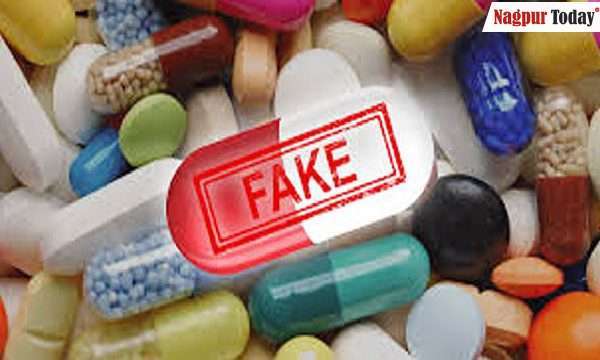Nagpur: The 1,200-page chargesheet filed by the Nagpur Rural Police on September 20 has unveiled shocking details about a widespread spurious drugs racket that endangered public health across multiple states. The antibiotics distributed to government hospitals, which were supposed to save lives, turned out to be nothing more than talcum powder mixed with starch, manufactured in a Haridwar-based laboratory originally meant for veterinary medicines.
The chargesheet highlights not just the supply of these counterfeit drugs to government hospitals but also the use of hawala channels for laundering crores of rupees. The cash was transferred from Mumbai to Saharanpur, Uttar Pradesh, and was then used to procure these fake medicines. The illicit drugs were distributed to hospitals across India, including in Uttar Pradesh, Jharkhand, Chhattisgarh, and Maharashtra.
The case came to light in December last year when Drug Inspector Nitin Bhandarkar discovered that the antibiotics supplied to the Rural Hospital at Kalmeshwar were fake. Following this revelation, the Food and Drug Administration (FDA) registered an offence against the suppliers and distributors at the Kalmeshwar Police Station. In response, the Nagpur Civil Surgeon’s office blacklisted the involved firms as part of follow-up actions.
Recognizing the severity of the case, Nagpur Rural SP Harssh Poddar assigned a special investigation to IPS officer Anil Mhaske, who serves as the SDPO Saoner. As the investigation progressed, similar cases began to surface in other districts including Wardha, Nanded, and Thane, leading to a state-wide crackdown on the racketeers.
Initially, the investigation focused on Hemant Muley, who had participated in the tender process to supply medicines to government hospitals in Nagpur. However, the probe soon expanded to include Mihir Trivedi and Vijay Chaudhury. Notably, Chaudhury was already in jail for a similar fraud case when Nagpur Rural Police took him into custody.
Chaudhury’s interrogation led the police to an operation in Haryana after he implicated Gagansingh as a key supplier of the fake drugs. However, when police raided the location in Haryana, they found a salon instead of a drug manufacturing site. Further investigation revealed the involvement of Saharanpur-based Robin Taneja alias Himanshu and Raman Taneja, leading the police to the Haridwar veterinary laboratory run by Amit Dhiman. Dhiman, already in jail after being arrested by Uttarakhand STF, was subsequently arrested in connection with this case as well.
Mhaske disclosed that the racketeers had extensive financial dealings, as evidenced by their bank details and transaction records, which showed multi-crore rupee dealings.
Operating through Chaudhary’s Cabhis Generic House in Thane, the gang generated over Rs 15 crore by using forged documentation associated with various shell and defunct companies. They supplied fake versions of commonly prescribed medications, including Ciprofloxacin, Livofloxacin, Amoxicillin, Cefixime, and Azithromycin, under the names of defunct firms such as Lab Evertouch Bio Remedies and M/s Ginx Pharmakon LLP.
The results, released in December 2023, revealed the tablets contained no medicinal properties. This prompted legal action under various sections of the Indian Penal Code, including fraud, forgery and criminal conspiracy. Nagpur (Rural) Police believe that further investigations may uncover additional layers of this illicit business with more arrests anticipated in coming days.
The Nagpur Rural Police’s diligent investigation has not only exposed the scale of this dangerous racket but has also underscored the need for stringent measures to prevent such incidents from recurring.

















